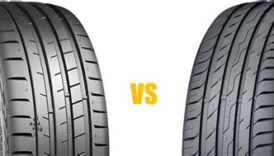Tire Review Title

When it comes to ensuring a smooth and safe ride, the importance of selecting the right tires cannot be overstated. With a plethora of options available in the market, tire reviews provide invaluable insights that can guide your purchasing decisions. This article delves into the nuances of tire types, evaluating essential performance metrics, and considering key factors that play a crucial role in a tire’s effectiveness. We’ll also share real user experiences to offer a comprehensive understanding of what to expect from various tire models. Whether you’re a seasoned driver or a first-time buyer, our guide will help you navigate tire reviews and make informed choices that enhance your driving experience. Join us as we unravel the impact of tire reviews on consumer choices and learn how to select the perfect tire for your vehicle.
Understanding Tire Types For Your Review
When writing a Tire Review, it’s essential to understand the various types of tires available in the market. Each tire type is designed with specific features tailored to different driving conditions, vehicle styles, and weather environments. Below is a breakdown of the most common tire types you’ll encounter:
- All-Season Tires: Ideal for moderate climates, these tires offer a blend of comfort, longevity, and traction in various conditions, including dry, wet, and light snow. They are versatile, making them a popular choice for many drivers.
- Summer Tires: These tires are engineered for performance in warm, dry, and wet conditions. They have a unique tread design that enhances handling and provides more grip on the road, but they are not suitable for winter conditions.
- Winter Tires: Specifically designed to handle snowy and icy conditions, winter tires feature deeper tread patterns and softer rubber compounds that remain flexible in low temperatures. This enhances traction and safety during winter months.
- Performance Tires: Tailored for high-speed driving and enhanced handling, performance tires often come with a softer compound and a specialized tread design. They are commonly found on sports cars but may sacrifice comfort and tread life.
- Off-Road Tires: Optimized for rugged terrains, off-road tires feature larger treads with deeper grooves to ensure traction on mud, sand, and rocky surfaces. They are essential for vehicles that frequently venture off the beaten path.
- Touring Tires: Designed for a smooth ride and long tread life, touring tires often provide enhanced comfort and low noise levels. They are suitable for family vehicles and are commonly used for long-distance travel.
Understanding these types of tires will not only aid you in making informed decisions while reading Tire Reviews, but it will also enable you to choose the right tires based on your vehicle’s specific needs and the driving conditions you encounter.
Key Factors To Consider In A Tire Review
When examining a Tire Review, several key factors come into play to ensure you make an informed decision. Here are the most essential elements to consider:
| Factor | Description |
|---|---|
| Type of Tire | Understand whether the tire is suited for performance, all-season, off-road, or winter conditions. |
| Brand Reputation | Look for reviews from reputable brands known for their quality and customer service. |
| Performance Metrics | Consider specifics like handling, braking, and traction in various conditions, which can significantly impact safety and performance. |
| Treadwear Warranty | A longer warranty can indicate a more durable tire and offers peace of mind for consumers. |
| Price Point | Evaluate the cost in relation to the performance and lifespan offered by the tire; affordable options may provide great value. |
Moreover, examining real user experiences and expert analyses can greatly enhance your understanding. A comprehensive Tire Review should incorporate these factors allowing for a well-rounded decision-making process.
By focusing on these aspects, you can determine which tires meet your needs and expectations effectively.
Evaluating Performance Metrics Of Tires
When it comes to conducting a Tire Review, understanding and evaluating performance metrics is crucial for consumers to make informed choices. Performance metrics provide insight into how well a tire functions under various conditions and can significantly affect driving safety and comfort. Here are some key metrics to consider:
| Performance Metric | Description | Importance |
|---|---|---|
| Traction | The tire’s ability to grip the road surface. | Essential for safety during braking and cornering. |
| Tread Life | Estimated mileage a tire can achieve before needing replacement. | Indicates cost-effectiveness and durability. |
| Fuel Efficiency | How the tire affects the vehicle’s fuel consumption. | Can lead to significant savings over time. |
| Noise Levels | Measurement of the sound produced while driving. | Affects driving comfort and overall experience. |
| Wet and Dry Performance | Handling characteristics on different surfaces. | Critical for performance in varying weather conditions. |
In addition to the above metrics, there are other factors like temperature resistance and load capacity that may influence a tire’s performance. By assessing these metrics in your Tire Review, you provide a comprehensive understanding of how different tires can perform under similar conditions. This detailed analysis not only assists consumers in making smarter choices but also highlights the strengths and weaknesses of various tire models.
Real User Experiences: Insights From Tire Reviews
When it comes to making informed decisions on tire purchases, Tire Review insights from real users can be invaluable. These reviews not only reflect the pros and cons of specific tire models but also bring to light the practical experiences of everyday drivers who rely on these products.
User experiences often highlight critical real-world factors that might not be extensively covered in professional assessments. For instance, many users share their thoughts on tire durability, tread life, and road noise, which can greatly influence long-term satisfaction. Features like performance in various weather conditions, such as rain or snow, are also frequently discussed, giving potential buyers a clearer picture of how tires hold up under different circumstances.
Moreover, personal anecdotes about handling on different road types—like gravel, asphalt, or off-road trails—can provide prospective buyers with practical insights that are crucial for selecting the right tire for their needs. Some users even compare their experiences with various tire brands, illustrating how differences in design can affect performance.
Additionally, reviews often reflect the level of customer service provided by manufacturers or retailers. Buyers appreciate not only the quality of the tire but also the support received throughout their purchasing journey, from installation guidance to warranty claims.
The insights gleaned from user experiences in Tire Reviews allow consumers to make more informed decisions. By taking into account the collective knowledge of previous buyers, individuals can better navigate their tire choices and ultimately find the best fit for their vehicles and driving habits.
How To Choose The Right Tire Based On Reviews
Selecting the right tire for your vehicle can be a daunting task, especially with the myriad of options available in the market. However, utilizing Tire Review insights can simplify the decision-making process. Here are some key steps to guide you in choosing the best tire based on reviews:
By following these steps and leveraging the insights available in Tire Review articles, you can make a well-informed decision that best suits your vehicle and driving needs.
The Impact Of Tire Reviews On Consumer Choices
Tire reviews have a significant influence on consumer behavior when selecting the right tires for their vehicles. As potential buyers navigate the overwhelming array of options available in today’s market, these reviews serve as a vital resource. The emphasis on the tire review process stems from several key factors:
- Informed Decision-Making: Consumers rely heavily on feedback and ratings from other users to make educated choices. Reading detailed tire reviews helps individuals understand the pros and cons of specific tire models, which can dramatically affect their purchase decisions.
- Trust and Credibility: When consumers see objective evaluations from fellow drivers, it enhances the perceived credibility of the reviews. Positive testimonials can encourage buyers to trust a particular brand, whereas negative comments can deter them from making a purchase.
- Comparative Insight: Reviews often offer comparisons between different tire brands and models. This comparative analysis helps consumers weigh their options more effectively, understanding how various tires stack up in terms of performance, durability, and price.
- Influence on Brand Loyalty: Positive experiences shared through tire reviews can foster brand loyalty. Consumers who have satisfactory experiences with certain types of tires are likely to return to that brand for future purchases, creating a cycle of repeat business.
- Community Engagement: Online forums and review platforms encourage interaction among users. This community aspect allows consumers to share tips, advice, and real-world experiences, creating a robust support network that shapes purchasing choices.
The impact of tire reviews on consumer choices cannot be underestimated. As drivers seek quality and safety in their tire selections, these reviews become instrumental in guiding decisions and fostering a more informed purchasing process.







This is a very detailed article, thanks for the insights! But I wonder, have you considered discussing the impact of tire pressure monitoring systems on tire performance and longevity? It’s becoming more common, and I think it could be beneficial to highlight those aspects too!